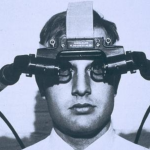2003
Nick Dyer-Witheford figures the place of video games in the global market, drawing on Marx's "species being" for scratch paper.
U.S. Steel chiefs and AOL-Time Warner executives span one hundred years of decimation wrapped in rhetoric. John Monberg annotates their enduring logics of expansion.
A call for (and example of) material studies of software from Matt Kirschenbaum, spurred by the Digital Arts and Culture conference, 2000.
On the imminent publication of the first alt-x critical e-book.
Marc Bousquet introduces a forthcoming Altx critical e-book, hosted online by ebr, appearing in five sections through the Fall of 2003. A new ebr thread, Technocapitalism, is built around its concerns.
Charles Bernstein's reflections on populism, democracy, and authority in the turbulent waters of web discussion groups and other new Internet sites.
A first-person narrative of Hactivism, Performance, and growing up at the U.S./Mexico Border from Fran Ilich.
Katherine Wills' anti-interview with Mark Amerika about Internet art.
Bennett Voyles' retrospective on the apolitical Nineties, and the fate of democratic electronic activism without content.
A discussion of net.activism, net.tactics, and strategy featuring Bruce Simon, Geert Lovink, Chris Carter, and Ricardo Dominguez.
The story of an activist website's shutdown, as told by DeeDee Halleck, with interstitial e-mails.
On the occasion of a new novel by Joseph McElroy and the Overlook Press reissue of McElroy's earlier work, Andrew Walser initiates a revaluation.
Further on McElroy and a novel that reflects the mind's helter-skelter workings while (for the protagonist) creating many occasions for avoidance.
In looking to the future of the 'electronic book,' Ciccoricco digs up some of ebr's manifesto-like remarks of old.
Stuart Moulthrop re-opens the debate on the "electronic book" and its continued marginalization vis-a vis print.
Shells, Tents, Slaps, Shocks: Steffen Hantke works slowly, from within, to get at McElroy's nonlinear narrative.
Steve Shaviro reviews Tomorrow Now by Bruce Sterling, a book that (for an eminent cyberpunk novelist) is perhaps too sane and sensible.
In between bubble and burst, e-commerce drew much of its content from donated labor. Tiziana Terranova questions just how "free" such labor has proved in practice.
Despite talk of endings and absences at Eastgate Systems, Dave Ciccoricco investigates continuities in the work of Michael Joyce and Mark Bernstein.
Darren Tofts reviews a popularization by Marie O'Mahony and an auto-critique of cyberculture by Andrew Murphie and John Potts.

